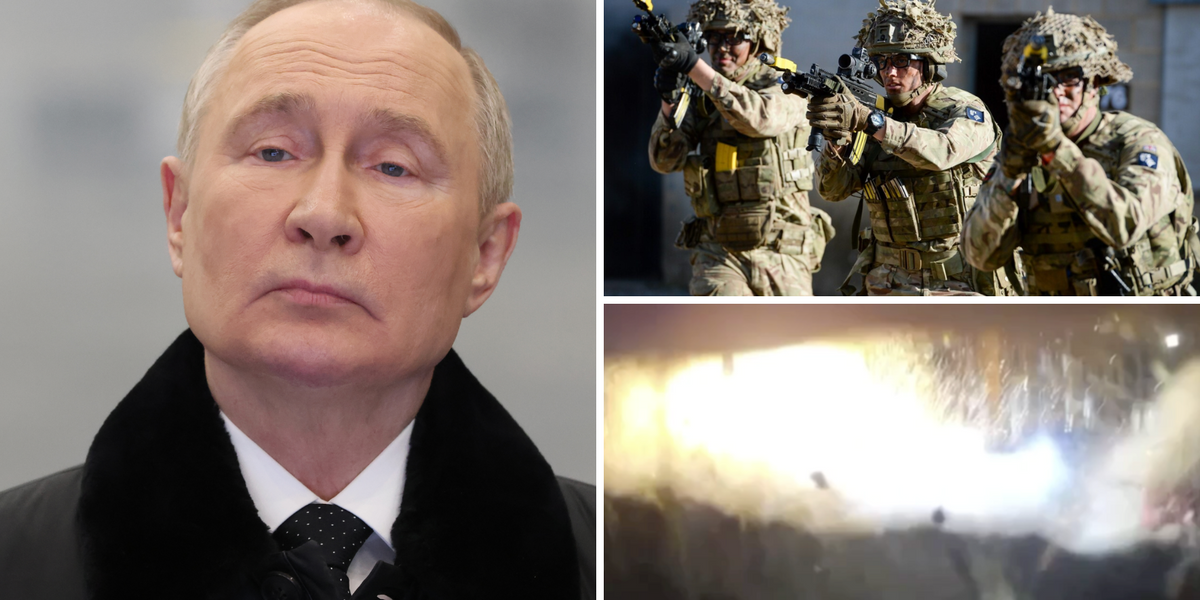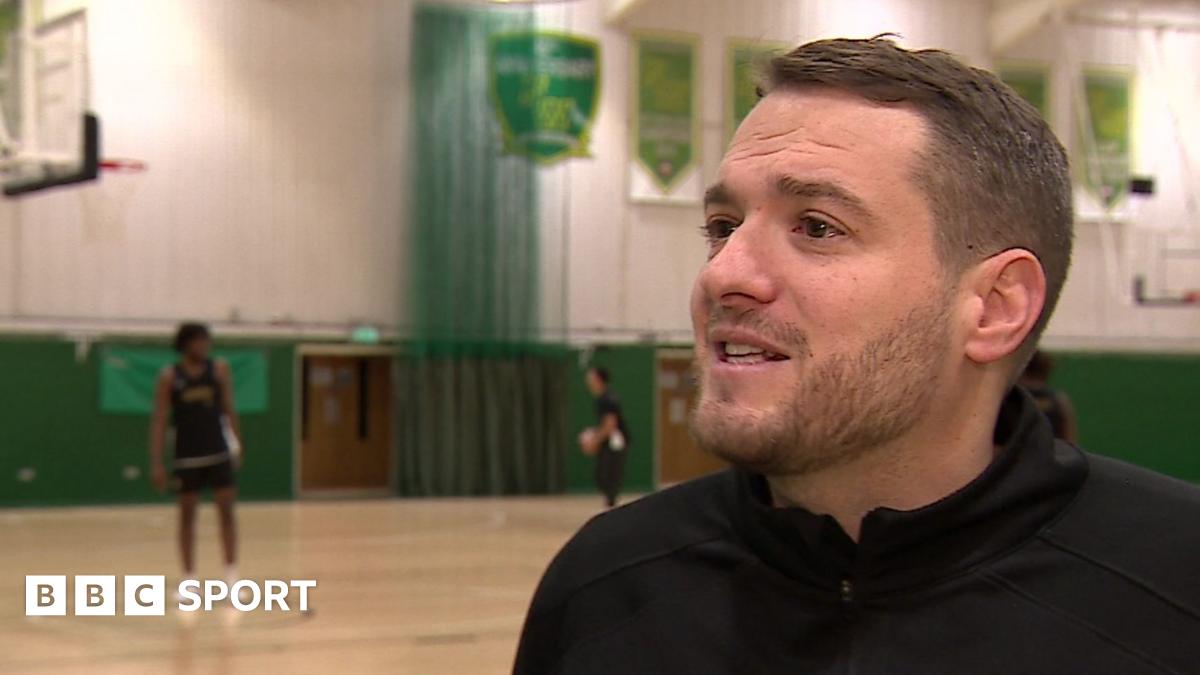Horoscope
Zelensky meets with top U.S., British diplomats over use of Western weapons on attacks inside Russia

U.S. Secretary of State Antony Blinken, centre, shakes hands with President of Ukraine Volodymyr Zelensky, right, as UK Foreign Secretary David Lammy looks on during the Fourth Crimea Platform Leaders Summit in Kyiv, Ukraine, on Sept. 11.Leon Neal/Getty Images
The top U.S. and British diplomats held face-to-face negotiations with Ukrainian President Volodymyr Zelensky in Kyiv on Wednesday, as Ukraine’s allies moved closer to allowing the country to strike targets inside Russia with Western-supplied missile systems.
U.S. Secretary of State Antony Blinken and British Foreign Secretary David Lammy left Kyiv without making any major announcements regarding the use of U.S.-supplied ATACMS missile systems and British-made Storm Shadow cruise missiles. But a senior Ukrainian security source told The Globe and Mail that Kyiv is hopeful restrictions on the use of the weapons will be lifted on Friday, when U.S. President Joe Biden is due to host British Prime Minister Keir Starmer in Washington.
“From Day 1, we have adjusted and adapted as needs have changed, as the battlefield has changed. I have no doubt we will continue to do that,” Mr. Blinken said at a press conference, adding that he would take what he had heard in Kyiv back to Mr. Biden. Earlier Wednesday, Mr. Zelensky said his country was counting on “some strong decisions” by its allies.
Donbas is exposed and fearful as Ukraine’s push into Russia stretches its defences
Kremlin spokesman Dmitry Peskov said Russia believed the decision to allow Ukraine to use the missile systems to strike Russian territory had already been made. Mr. Peskov said Russia would make an “appropriate” response to the move.
Amid near-daily Russian missile and drone strikes on Ukrainian cities – an air alarm sounded over Kyiv even as Mr. Blinken and Mr. Lammy were meeting with Ukrainian officials – Ukraine wants to use the long-range systems to strike missile launch and storage sites inside Russia. The United States reportedly shipped more than 100 ATACMS to Ukraine earlier this year, while Britain began supplying Storm Shadows last year. Both systems were delivered with the restriction that they only be used to strike Russian military targets inside Ukraine.
On Tuesday, Mr. Biden said the White House was “working on” the question of whether and how to allow Ukraine to use ATACMS – an acronym for Army Tactical Missile System – to strike Russian territory. The missiles have a range of 300 kilometres, while the Storm Shadows have a range of up to 560 kilometres.
The senior Ukrainian security source, whom The Globe is not naming because they were not authorized to publicly comment on the sensitive negotiations, said Ukraine had promised to only use the weapons to strike “legitimate military targets” inside Russia, and not to use them against Russian cities or civilian infrastructure.
The source dismissed Russia’s escalation threats, saying that Moscow was already using all of its weapons to strike Ukraine except for its nuclear arsenal. The Kremlin recently said that it was changing its nuclear doctrine – which states that nuclear weapons can only be used “when the very existence of the state is in jeopardy” – in light of Western military support for Ukraine.
U.S. and Britain accuse Iran of sending Russia missiles to use in Ukraine
More than 2½ years after Russia launched its invasion, both sides are acquiring new military capabilities rather than preparing for peace talks. The trip by Mr. Blinken and Mr. Lammy to Kyiv came one day after the two men said Iran had begun delivering batches of short-range Fath-360 ballistic missiles to Russia. The Iranian missiles, which have a range of 120 kilometres, are expected to be used against targets in Ukraine within weeks.
“If anyone is taking escalatory action, it would appear to be Mr. Putin and Russia,” Mr. Blinken said Wednesday.
Though Iran’s Foreign Ministry has denied the accusations it is supplying Russia with missiles, the U.S., Britain, France and Germany announced new sanctions Tuesday against Iranians and Iranian entities involved in the alleged weapons transfer, including the state carrier Iran Air.
Mr. Lammy suggested on Wednesday that the Iranian deliveries had added a new urgency to the debate around the rules for Ukraine’s use of Western-supplied weapons. He told the BBC that he and Mr. Blinken had made a rare joint trip to Kyiv “to speak to President Zelensky, to hear and understand the strategy, because we are determined to see Ukraine win in the coming months.”
Mr. Blinken announced US$700-million in new assistance to help Ukraine cope with Russian attacks on its energy infrastructure, while Mr. Lammy announced just more than US$315-million in similar aid.
The trip by Mr. Blinken and Mr. Lammy also coincided with Russia launching what appeared to be a major counteroffensive aimed at driving Ukrainian troops out of the Kursk region of Russia. Ukraine launched a surprise cross-border incursion in August and has since been holding onto around 1,200 square kilometres of Russian territory, in the first such invasion of Russian soil since the end of the Second World War.
The ‘exchange fund’: Russian POWs in Ukraine adjust to their new reality
Pro-Kremlin military bloggers claimed that Russian troops and armoured vehicles had crossed the Seym River and were approaching the Ukrainian-held town of Snagost. The senior Ukrainian security source confirmed to The Globe that a substantive Russian counterattack was under way, although he would not discuss operational details.
Mr. Zelensky has portrayed the Ukrainian incursion into Kursk as part of a “victory plan” that he will present to Mr. Biden later this month. But the gains in the Kursk region have come as Ukraine continues to lose ground on the war’s main front, in the southeastern Donbas region. Russian troops are now just eight kilometres from the strategic city of Pokrovsk, after advancing 35 kilometres over the past six months.
Mr. Peskov, the Kremlin spokesman, said the escalating Western military support for Ukraine underscored “the justification, necessity and inevitability” of Russia’s 2022 invasion. Russian President Vladimir Putin has cast the war as necessary to prevent Russia’s neighbour and former satellite from joining the NATO military alliance.
Mr. Putin has also falsely claimed that his troops are seeking to “de-Nazify” Ukraine, despite the fact Mr. Zelensky is Jewish. The absurdity of that casus belli was underscored again Wednesday when Ukraine’s chief rabbi, Moshe Azman, announced on social media that his son Anton, a soldier, had died on the front, fighting for Ukraine.
The U.S. and British foreign ministers met President Volodymyr Zelensky on Wednesday on a visit interrupted by air raid warnings, unveiling new support but no breakthrough on the long-range strikes into Russia desperately sought by Ukraine.
Reuters









